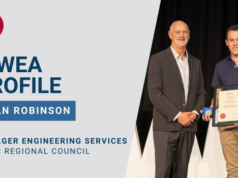Those of us involved in public works have known for quite some time that our sector is at risk of running out of skilled professionals, particularly asset managers.
In 2018, Local Government NSW (LGNSW) revealed in its Workforce and Future Skills Report that asset managers ranked sixth on the list of the top 10 professional occupations with a skills shortage. Since then, the situation has grown more serious.
LGNSW’s recent NSW Local Government Priorities report, issued in the wake of the 2021-2022 State Budget, found that four in five NSW councils are experiencing skills shortages in engineering, asset management and/or planning.
In the past, Australia has used immigration to deal with skills shortages across a range of sectors. But with the Delta variant prolonging the pandemic and keeping our borders closed, that option is currently off the table.
Meanwhile, the Coalition is preparing to deploy the $17 billion in infrastructure funding it announced in its recent Budget. IPWEA applauds this investment, but we ask: who will bring these projects to reality and manage the assets once they are built?
The answer: our existing workers. Rather than import talent or search endlessly for qualified Australians, we can upskill the people who work for our councils and who understand our world.
This approach served me well in my previous career, when I coached professional rugby. While many clubs were looking outside their own walls to recruit players, I made it a priority to develop youngsters who were involved in our club at the amateur level.
It took time and patience to get them ready to perform, but it paid dividends. We established a talent pipeline for the club that made us self-sufficient and produced excellent players who were more loyal to us than those from elsewhere.
Look for employees with potential
Australian councils have successfully used this technique, too. Recently, I heard about a council in Adelaide that decided to train one of its most competent gardeners to manage a team of his peers.
He performed so well as a manager that the council asked him if he wanted to asset-manage the entire parks portfolio. He said: “But I haven’t got a clue about asset management.” So, the council enrolled him in an IPWEA training course.
Now that he’s trained up, the employee is doing a phenomenally good job managing the council’s park assets. The knowledge he acquired as a gardener and team leader, combined with his subsequent training, have given him an edge.
Other councils struggling to find qualified asset managers could benefit greatly from this approach. It’s about looking within your organisation and identifying those employees with potential, then pushing them up the value chain.
Don’t get too fixated on finding people who already have related qualifications. IPWEA’s Education Pathway has no barriers to entry, so you can train your most promising employees from any department.
The Federal Government has a role to play here, too. Its recent commitment to infrastructure projects needs to be matched by an investment in training.
There is still time to avert a skills crisis, but it will require new ways of thinking. Now it’s up to governments to rise to the occasion.














